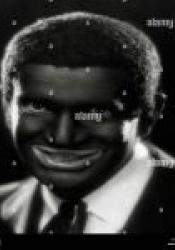Blackface: The start of American Stereotype
Blackface: The beginning of a stereotype
Blackface is something that started years ago and like many other things in history, especially when it has to do with black people, it was ignored and is still around to this very day. This is something that because it was so normalized in history, it was not seen as harmful to black people, or even white people for that matter, so it expanded to a lot of different people doing this one thing that has so much negative history behind it. What comes from blackface and the people who do it, is a terrible misrepresentation of black people, a stereotype that they have placed upon the black race to show what they think they look like and act like. As quoted by The New York Times, “blackface is an unambiguous form of racist mockery with clear origins in the virulent white supremacist history of the United States.” (Bouie, 2019)This quote really encompasses the reason why blackface is such a serious and disrespectful thing to do. While this may seem like it does not have much to do with the Will Smith Oscars situation, it really shows how Black people are not able to function and move the way white people do, unless it is for the entertainment of the non-black populus. This is because, while what he did was not right, the general public and the entertainment industry are now making it seem as Will Smith is an unhinged beast, who attacks anyone he sees. Not taking into account what led up to the slap, nor are they acknowledging how worse things have happened at such award shows have garnered a much less hostile response from people, albeit they are from mostly non- black people which does nothing but furthers the argued point. Blackface is so important to the history of the United States because it shows just how little regard was given to black people, and how the misery of black people was used as entertainment and consumed with enjoyment from the white populus. Blackface as a whole began to spread much further than just cultural appropriation as quoted, “it arose from white obsession with black (male) bodies that underlies white racial dread to our own day, it ruthlessly disavowed its fleshly investments through ridicule and racist lampoon.” (Lott, 1992). This quote is explaining how not only did blackface first be made because of the need to find amusement and entertainment in the black population and their oppression, they particularly were obsessed with the idea of demeaning black males and being able to act like them. As quoted from The New York Times, “Beyond simple mockery, the pleasure of blackface for white performers and their audiences lay in the vicarious experience of an imagined blackness — a wild, preindustrial “savage” nature that whites attributed to black Americans.” (Bouie, 2019). This quote shows the ideas and stereotypes they made and used through the usage of blackface. This is the quote that speaks the most to the Will Smith event at the Oscars. While the physical assault is not okay, the action did nothing but strengthen these stereotypes that non-black people have of him, and give them something to use against him. While at the same time it is not right because, the same non-black people do not see it as “savage” or “unhinged” when a non-black person of importance or power does something like this. So, this calls into question, is the academy and other people in the public really upset about what happened to Mr.Tucker, or are they just feeding into the negative stereotypes that have been placed upon black people?
Works Cited:
Lott, E. (1992). Love and Theft: The Racial Unconscious of Blackface Minstrelsy. Representations, 39, 23–50. https://doi.org/10.2307/2928593
Bouie, J. (2019, February 4). Blackface is the tip of the iceberg. The New York Times. Retrieved May 2, 2022, from https://www.nytimes.com/2019/02/04/opinion/northam-blackface-racism.html...
Saxton, A. (1975). Blackface Minstrelsy and Jacksonian Ideology. American Quarterly, 27(1), 3–28. https://doi.org/10.2307/2711892
Related Links:
On Louise Gluck, Minstrelsy, and Abolition https://studio.covecollective.org/anthologies/sp22-eng-l302-anthology/documents/on-louise-gl%C3%BCck-minstrelsy-and-abolition
Carlyle's "Negro Question" Blacklives Matter Timeline:https://editions.covecollective.org/chronologies/carlyles-negro-question

